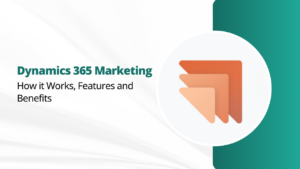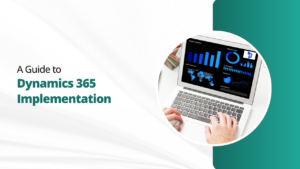The integration of Customer Relationship Management (CRM) systems and accounting software like QuickBooks has become crucial for organizations seeking to manage their financial operations. However, this integration can be complex and requires careful planning. In this blog, we will delve into the best practices for Microsoft CRM QuickBooks integration, helping you maximize the benefits of this dynamic duo.
About QuickBooks:
QuickBooks is a popular accounting software program that is used by businesses and accountants around the world. It is designed to help businesses track their income and expenses, manage their inventory, and prepare financial statements.
QuickBooks is a cloud-based software program, which means that it can be accessed from anywhere with an internet connection. This makes it a convenient option for businesses that have employees who work remotely or who need to access their financial information from different locations.
Quickbooks Features:
QuickBooks is a powerful accounting software program that offers a wide range of features. Its key features include:
- Invoice creation and tracking: QuickBooks makes it easy to create and track invoices. You can easily create invoices from templates, and QuickBooks will automatically track the status of your invoices and send reminders to your customers.
- Expense tracking: QuickBooks makes it easy to track your expenses. You can easily enter your expenses into QuickBooks, and it will automatically categorize your expenses and track your spending trends.
- Inventory management: QuickBooks can help you to track your inventory levels, manage your reorder points, and track your inventory costs.
- Financial reporting: QuickBooks can generate a variety of financial reports, including balance sheets, income statements, and cash flow statements. These reports can help you to track the financial health of your business and make informed decisions about your business.
- Banking integration: QuickBooks can connect to your bank account and automatically import your transactions. This can save you time and help you to keep your records accurate.
- Payroll: QuickBooks can help you to manage your payroll, including calculating wages, deductions, and taxes. This can save you time and help you to comply with government regulations.
- Mobile app: QuickBooks offers a mobile app that allows you to access your QuickBooks data from anywhere. This can be helpful if you need to track expenses while you’re on the go or if you need to invoice customers from your phone.
Microsoft CRM QuickBooks Integration:

Alt Text:
Microsoft CRM QuickBooks Integration
Microsoft CRM and QuickBooks are two of the most popular business applications in the world. They can be used to great effect independently, but when they are integrated together, they can provide a powerful platform for managing your entire business. Microsoft CRM QuickBooks Integration establishes an understanding of customer interactions by combining CRM insights with QuickBooks’ financial data, empowering teams to provide personalized experiences. Through automated order and invoice management, accuracy is heightened, errors minimized, and resource efficiency improved.
Benefits of Microsoft CRM QuickBooks Integration:
There are many benefits to integrating Microsoft CRM and QuickBooks. Some of the key benefits include:
- The integration can help to automate many of your business processes, which can free up your time to focus on other tasks.
- The integration can help to ensure that your data is accurate and up-to-date, which can help to reduce errors and improve your decision-making.
- The integration can help you to provide better customer service by providing you with a 360-degree view of your customers.
- The integration can help you to increase your profitability by providing you with better insights into your business and helping you to make better decisions.
Best Practices for Microsoft CRM QuickBooks Integration
Here are some best practices for integrating Microsoft CRM and QuickBooks:
1. Choose the right integration solution:
There are a number of different integration solutions available, so it’s important to choose one that is right for your needs. Some factors to consider include the size of your business, the complexity of your processes, and your budget.
2. Define your requirements:
Before you start the integration process, it’s important to define your requirements. This will help you to ensure that the integration solution meets your specific needs. Some things to consider include the data that you want to synchronize, the frequency of synchronization, and the level of integration that you need.
3. Test the integration:
Once the integration is in place, it’s important to test it thoroughly. This will help you to identify any potential problems and ensure that the integration is working as expected.
4. Train your users:
Once the integration is tested and working properly, it’s important to train your users on how to use it. This will help them to get the most out of the integration and avoid making mistakes.
Monitor the integration. Once the integration is in production, it’s important to monitor it on an ongoing basis. This will help you to identify any problems that may arise and take corrective action as needed.
Tech Implement: Microsoft CRM QuickBooks Integration Expert
Tech Implement is a trusted partner for businesses of all sizes. We have a team of experienced professionals who can help you to integrate your CRM and QuickBooks data so that you can get the most out of your business applications.
If you are looking for a partner to help you with CRM and QuickBooks integration, Tech Implement is the perfect choice. We have the experience, the expertise, and the commitment to help you achieve your business goals.
Contact us today to learn more about how we can help you to improve your business with CRM and QuickBooks integration.



